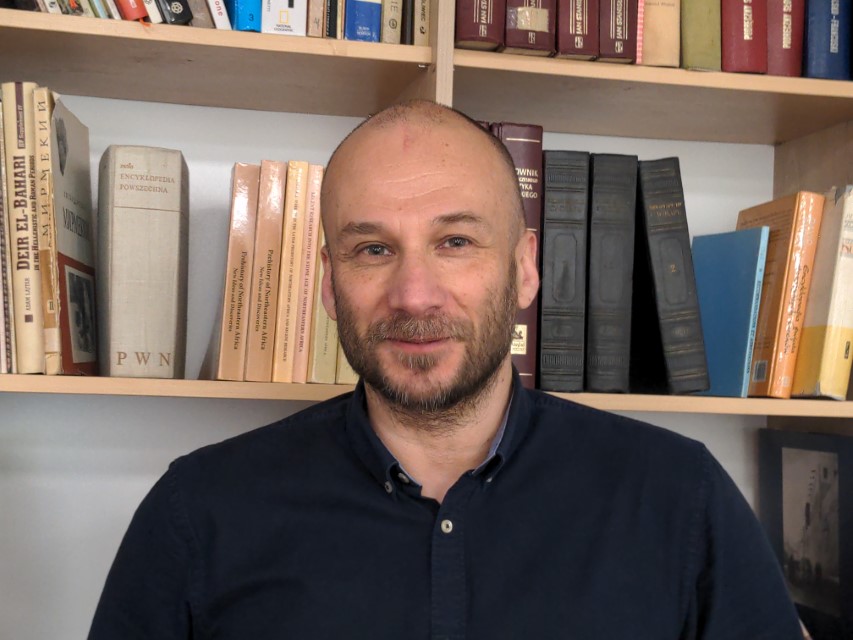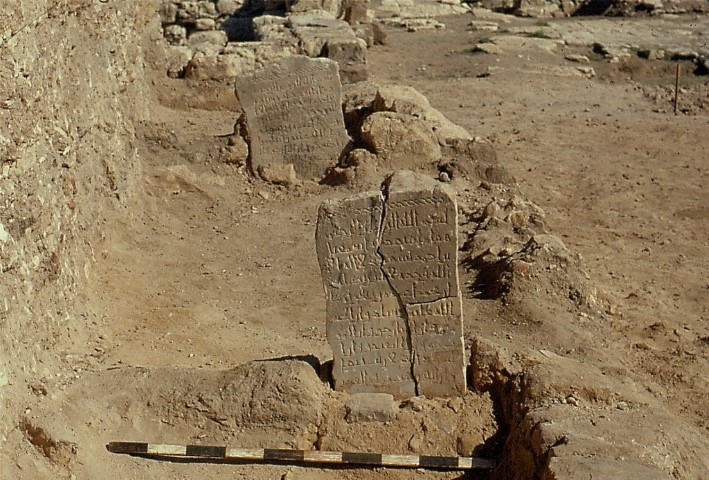-
Principal Investigator:
Dr. Robert MahlerContact: r.mahler@uw.edu.pl

Project term:
July 21, 2023–July 20, 2026
Budget:
PLN 1 189 945
Funding:
National Science Centre, Poland, SONATA-18, 2022/47/D/HS3/02162

-

Muslim women in Fatimid Alexandria: Why did they die young? Biocultural factors in the change of living conditions for people buried at Kom el-Dikka in Mediaeval Alexandria compared to the rural Christian population on the fringes of Fayoum
Keywords: women, wellbeing, Alexandria, Kom el-Dikka, Muslim cemetery, mediaeval, Fatimids, Naqlun, Christian cemetery
Recent bioarchaeological research at Kom el-Dikka has revealed an interesting twist in the welfare of the women buried there. Muslim women living under Fatimid rule were more likely to die at a young age than those who preceded them. At the same time, the living conditions of the whole group of people buried in the cemetery under Fatimid rule seem to have improved. This raises the question of what might have been the cause of the observed change.
The present project seeks to answer this question, primarily through new data acquired both in the course of excavations and in-depth studies of previously excavated material. Observations and analyses of burials from the so-called Upper Necropolis, most likely of a Fatimid date (11th–12th century), and the earlier Lower Necropolis (9th–10th century), will be compared with each other and related to a similarly dated series of Christian burials from Naqlun in the Fayoum Oasis (11th–13th century). Such a comparison, made within a single project, by the same research team using the same set of methods, is expected to ensure high-quality results.
Women living in Egypt in the Middle Ages are only rarely mentioned by historical sources. By elucidating the reasons for both the observed differences and similarities between the studied groups on biocultural grounds, we expect to gain new knowledge about the role of women in medieval Egypt. We may also learn something new about the impact of Islamisation on their lives.
Project collaborators:- Prof. Joel Irish, odontologist
- Dr. habil. Grzegorz Majcherek, archaeologist/ceramologist
- Dr. Paweł Dąbrowski, odontologist
- Dr. Magdalena Pinker, orientalist
- Dr. Agnieszka Tomaszewska, biological anthropologist
- Agata Bisiecka, biological anthropologist
- Barbara Czaja, textile specialist
- Daria Gromnicka, biological anthropologist
- Renata Kucharczyk, glass specialist
- Joanna Lesiak, biological anthropologist
- Magdalena Ostrowska, archaeologist
- Joanna Wysocka, biological anthropologist
Associated events:Lectures and conference presentations:Project bibliography:Links
- Read more about Kom el-Dikka in Alexandria
- Read more about Naqlun
- Open-Access publication Robert Mahler, Changing Life in Egyptian Alexandria: The Testimony of the Islamic Cemetery on Kom el-Dikka, (=Polish Publications in Mediterranean Archaeology 3), Leuven–Paris–Bristol: Peeters Publishers, 2021
